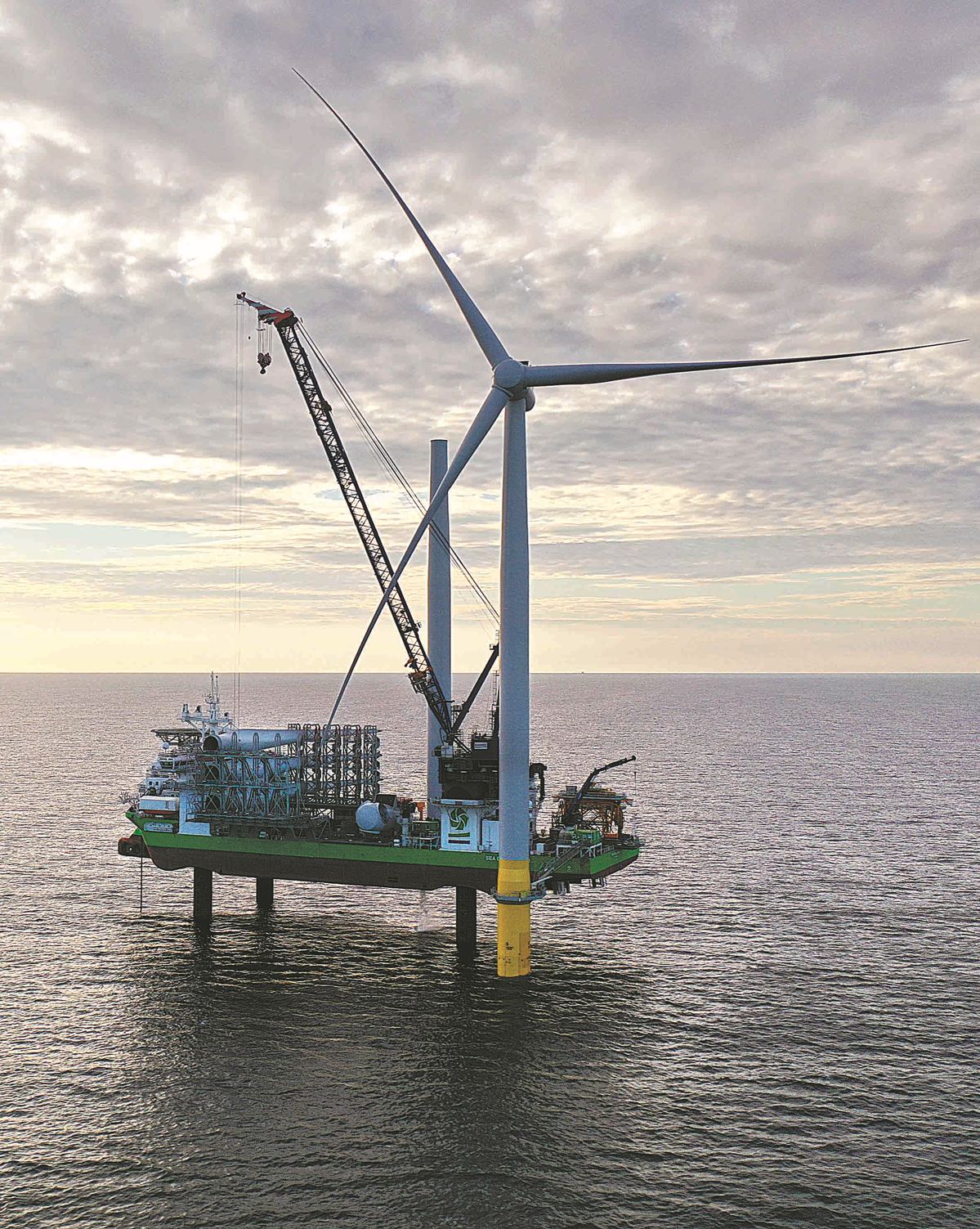Cold reality of EU energy missteps sets in
By BO LEUNG in London | China Daily | Updated: 2022-01-12 09:10

Financial difficulties
As wholesale energy prices soared, many energy companies in Britain have faced financial difficulties, with some collapsing under the pressures.
So far, about 30 energy companies in the UK have gone bust. Zog Energy, Orbit Energy, Entice Energy and Bulb are just some of the suppliers that have folded in the past three months, affecting millions of customers.
Dani said another factor contributing to the supply woes is a move by the UK government to open up the country's gas market, with smaller players coming in. These operators relied on the spot market for gas, but locked in customers by offering long-term prices.
"As soon as the spot prices go up, most of these smaller suppliers are faced with tremendous losses. They just cannot cope with it, and that is why a lot of energy firms are folding," Dani said.
In October, Taofeeq Ibn-Mohammed, assistant professor and head of sustainability research at the University of Warwick, told China Daily: "A short-term solution is for the government to offer support to energy companies to avoid their complete collapse. This will include intervention options such as subsidies and capping of energy prices and profits to shield the consumer from the bigger impact of the crisis."
A lack of large-scale gas storage facilities in Britain has added to the problem, following the closure of a plant operated by Centrica in 2017 when it was deemed unsafe.
"The UK has also reduced its gas storage capacity for winter requirements across the country to only five days, down from 15 days previously," Dani said. "So that can cause a big problem during winter and now as the winter is setting in, there is going to be a huge issue in terms of how we are going to manage the supply of gas for the country during a global shortage."
As fossil fuels-including the most polluting of them, coal-are gradually phased out, many economies will look toward natural gas as a transition toward green alternatives such as the output from wind turbines and solar panels.
"The EU is the region of the world that is most committed to the transition and moving fastest toward renewables. Natural gas is the bridge in that transition. But of course, the EU is not the only region transitioning," Allard said. "China and India also are demanding massive volumes of natural gas to replace coal, and if they were more committed to the emissions targets that the world needs to stop climate change, they would demand more. Unfortunately, renewables like wind and solar do not yet produce enough to meet the continent's energy needs."
Allard warns that the crisis is worsening. She suggests relief could come from the United States, which has immense supplies of natural gas. However, Asian demand is pushing up prices and the northern hemisphere is in the grip of winter.
The skyrocketing gas prices have prompted some experts to call for a more balanced approach when it comes to phasing out unclean energy sources such as coal and gas.
"When we talk about transitioning to a net-zero carbon economy, we must realize that the process takes time and the infrastructure to facilitate the transition must be in place before abandoning current energy systems and networks," Ibn-Mohammed said. "The level of integration of renewable energy technology with the electrical grid is still quite low."
Issues such as poor output from renewable energy sources and a lack of wind power supplied to energy grids must be taken into account, he said.
"This poses specific challenges to the electrical grid operator, thus necessitating the need for alternative energy sources when demand outstrips supply," Ibn-Mohammed said.
Ibn-Mohammed stresses the need for "a decisive and fundamental structural change to the dynamics of how we live if we were to truly attain a net-zero carbon and resilient economy".
"Individuals and the government must take responsibility as well," he said. "The government will have to look for ways to improve the resilience of our supply chains through the implementation of intelligent decentralization of the economy, thus reducing the reliance on one country or another through globalization, whose overall weakness has been exposed in the wake of the supply chain disruptions during the COVID-19 pandemic."
The Carbon Tracker, a not-for-profit think tank researching the impact of climate change on financial markets, said the protracted gas crisis was largely sparked by an overdependence on gas from within Europe in the wake of a rapid exit from coal that was accompanied by an inadequate shift to renewable sources.
Jonathan Sims, a senior analyst at Carbon Tracker, said: "Volatility within the natural gas market is nothing new, however. The political sensitivities surrounding the market have brought frequent price swings in recent years amid fears that supply may be reduced at any time.
"Although these movements may not have been to the extent that we have seen this year before, extreme volatility and exposure to commodity price movements is something that impacts gas generation, but not renewables."
























